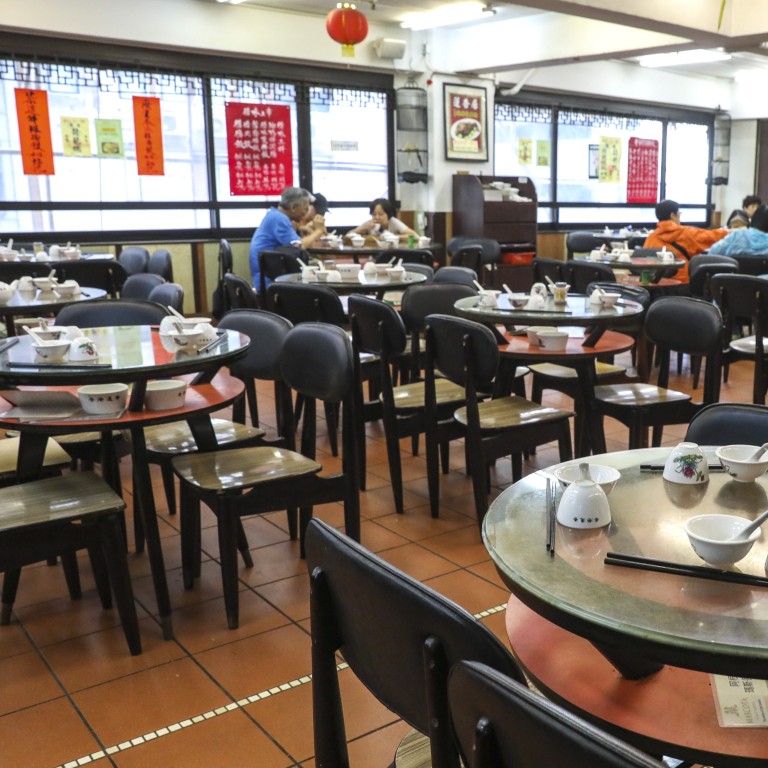
Amid Hong Kong anti-government protests, city’s economy expected to shrink 1.3 per cent for the year
- Local trade has been buffeted by the US-China trade war and political unrest on the streets
- It would be the first annual decline in a decade
Hong Kong’s economy is expected to shrink by 1.3 per cent this year under the shadow of the US-China trade war and political unrest in the city, officials said on Friday.
It would be the first annual decline since 2009, when the world economy was reeling from the global financial crisis, and a government economist said things were unlikely to improve in the remainder of the year.
The government downgraded its growth forecast for the city’s gross domestic product (GDP) for the second time this year, from a previous prediction of between 0 and 1 per cent growth. The initial estimate, before August, was 2 to 3 per cent.
The year-on-year figure for the third quarter showed a drop of 2.9 per cent, the biggest such contraction in a decade. Compared with the second quarter, the economy shrank 3.2 per cent, after a 0.5 per cent decline in the preceding quarter, indicating that the economy has entered a technical recession.
Government economist Andrew Au Sik-hung said “local social incidents” had dealt a heavy blow to an economy already weakened by the slowing global economy and the ongoing tariff war between Washington and Beijing.
“It’s the start of an economic downturn. We can’t see the situation will be significantly improved in the fourth quarter,” Au warned.
He said the recession 10 years ago lasted four to five quarters, but he could not tell how long the current one would linger because the main problem was a social one.
“Whether the economy can recover to positive growth depends on the social situation. Stopping violence to make residents feel comfortable to spend money outside and to improve business sentiment is the key,” he said.
Since the protests began, triggered by a now-withdrawn extradition bill, various industries have paid a heavy price, mostly because of an abrupt tourism downturn and weakened consumer sentiment. This week, many businesses were forced to close as protesters tried to grind transport systems to a standstill.
Au said the unemployment rate, now at 2.9 per cent, could increase.
Even though negotiations were under way for a first-phase trade deal between the US and China, uncertainties still remained as differences on some key issues had not been resolved, he added.
Agreeing, Dennis Ng Wang-pun, president of the Chinese Manufacturers’ Association, estimated local export value would drop 5 to 10 per cent in the year’s final quarter.
He acknowledged the eased trade tensions, but cautioned that “the improvement can only take place in the next year because the number of orders this year has been settled”.
Chinese University economist Terence Chong Tai-leung said the government’s latest annual GDP forecast was reasonable, despite the latest estimate by private-sector analysts averaging a contraction of about 0.7 per cent.
He estimated the jobless rate would rise a little in October and November, but the recession would not last too long based on previous experience.

